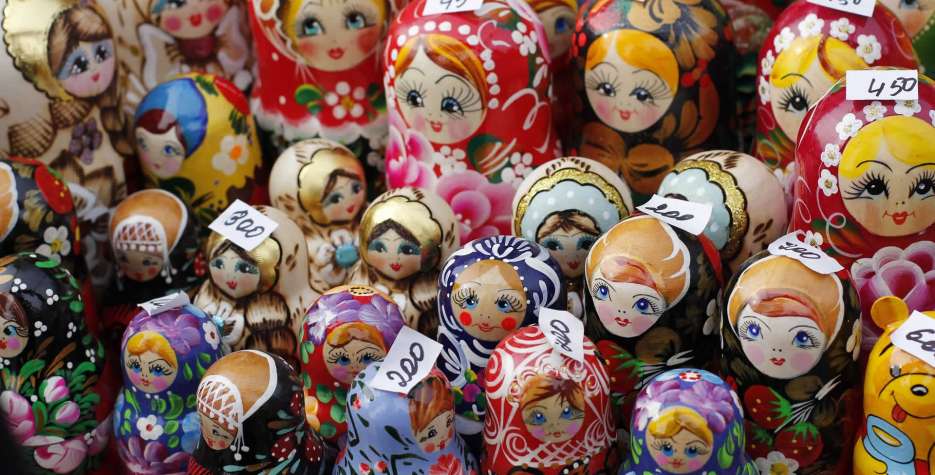Most of our vacation involves looking around to observe unusual customs, seeing people in traditional costumes, admiring breathtaking scenery, and figuring out why people do what they do. But some particular practices are weirder than
Most of our vacation involves looking around to observe unusual customs, seeing people in traditional costumes, admiring breathtaking scenery, and figuring out why people do what they do. But some particular practices are weirder than others. One thing that distinguishes humans from other members of the animal kingdom is our proneness to develop customs and traditions around everything from beauty rituals to sexual habits. As a result, the world has been blessed with a wealth of unique cultures since the dawn of time. Without a doubt, a crucial aspect of any given culture is its code of ethics. Here are some flabbergasted traditions from around the world that will surely knock your socks off!
Spitting on the Bride at Weddings in Greece

This practice was popularized thanks to the 2002 film My Big Fat Greek Wedding. Spitting in Greek cultures is a kind of good luck charm that is supposed to help ward off the devil. Today, this custom does not usually involve guests spitting loogies at the bride. Instead, it has evolved into a more symbolic act where the guests mainly pronounce “ftou ftou ftou” forcefully. The Greeks also do this on other special occasions, such as baptisms, to acknowledge the baby’s beauty and good health. Spitting can even be a superstitious measure to ward off evil in ordinary conversation.
September 12 Is the Day of Conception in Russia

Cultures generally approach sex, marriage, and reproduction in unique ways. However, Russia can take the cake on this in terms of traditional acceptance. Indeed, the declining birth rate in the country, coupled with the unequal proportion of women to men and the alarming lifespan of Russian men, is of great concern. Thus, the government has introduced a holiday created solely to give couples time off work to have sex in the hope that it will result in pregnancy. Parents whose babies are born exactly nine months later can even win prizes for maintaining the Russian lineage.
Hanging Out in Cemeteries in Denmark
If cemeteries are the scene of a frightening legend in many countries, this is not the case in Denmark! Many people prefer to hang out in parks, but the Danes find it an excellent idea to convert their cemeteries into socializing places. These cemeteries are well maintained and swarming with locals when the weather finally starts to warm up. Assistens Kirkegård, in the country’s capital, Copenhagen, is a perfect example. Also, you’ll be in great company as many famous Danes are buried here, including Hans Christian Andersen.
Kneeling or Lying Prostrate as Greeting in Nigeria

For members of the Yoruba people, an ethnic group largely residing in Nigeria, greeting rituals are taken seriously. This is especially true concerning greetings to elders. When an adult approaches, Yoruba youth are expected to get down on their knees to greet him or her. Specifically, women kneel to greet, and men usually lie prostrate. These gestures are a sign of respect and deference for the elders of the community. Interestingly, this custom distinguishes the Yoruba from other ethnic groups in Nigeria, notably the Bini and Kalabari.
Slurping in Japan
Most societies around the world have rules about table etiquette. In Western cultures, noisy consumption of food is considered rude. In Japan, on the other hand, making sucking noises while eating has an entirely different meaning. It may have something to do with the fact that Western countries consume noodles by turning them on a spoon before putting them in the mouth. Meanwhile, the Japanese are content to suck their noodles without contorting them first, an act that is naturally louder than the first. In Japan, making gurgling noises while eating noodles is one way to show that you really enjoy them. Some scientists even claim that slurping invites air into the palate and actually enhances the flavor of the noodles.
Thumb Pointing in Malaysia
Some countries find that pointing with the index finger is abrasive and rude. While most cultures would probably agree that literally and figuratively pointing is not exactly the gentlest thing in the world, in countries such as Malaysia and Indonesia, it can be considered incredibly offensive. It is rather common to gesture towards things with the thumb, as this is regarded as a more polite option. In many African countries, pointing is reserved for inanimate objects only, not people.
Neck Ring Culture, Asia and Africa
Among some African and Asian tribes, the culture of neck rings is very famous. It consists of wearing around the neck stiff neck jewelry (brass coils) that give the impression that the neck is elongated. Brass rings have been worn around the neck for two years of a little girl among the Padaung women of the Kayan people in Myanmar. They consider long necks to be a sense of beauty in their homes. The Ndebele people of South Africa also wear neck rings to show their wealth and status. Bizarre cultures to its peak!
Our world is a mosaic of 195 countries, and that certainly makes it a melting pot of countless cultures, customs, laws, religious beliefs, and traditions. Whether it’s the tribes of Africa, the nomadic Bedouins of Arabia, the most urbanized European and North American countries, or the vibrant countries of Central and South Asia, there are some of the freakiest destinations and rituals in every country that are astonishing and hard-to-believe. These cultures, mostly practiced by tribes worldwide, may not be easy to understand but are surely worth a look.






